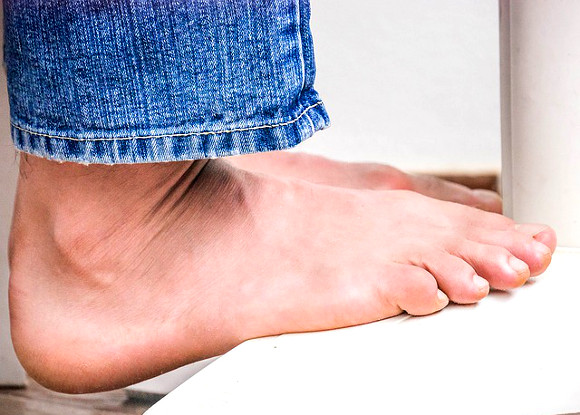Public places where germs live
While we can’t see them with a naked eye, germs, as bacteria and viruses are everywhere around us and we are constantly in contact with them. It’s enough to touch the phone at work, the shopping cart at the supermarket or the door knob of a public toilet to pass the bacteria on your hands. And if then you touch your nose before you even blink, germs and bacteria will settle in it.
The good news is that our body successfully fights germs that come to us everyday, so a very small percentage of them can actually harm a healthy person with a good immunity.
However, the answer to the question whether you should be concerned about germs in public places, is yes. No matter how much you care for hygiene, there are always other people that neglect the hygiene, so it is good to know which places and objects you should avoid touching, but also to take appropriate measures when you come in contact with them.
You already know that the toilet bowl in public toilets is full of germs, you know that the seats of the buses are full of bacteria and viruses, you know that hospital waiting rooms are full of bacteria and viruses, but there are certainly places that you never thought that can be the source of germs and bacteria and of which you should beware.
Here are some of them:
Shopping carts in the supermarkets
On the handles of the shopping carts in a supermarket, one can found saliva, fecal and various others germs, such as bacteria. According to a study from the United States, on more than two thirds of the shopping carts were found fecal bacteria. It’s sure that you would not want to choose your fruits and vegetables with the same hands that pushed the shopping cart.
Tip: Wear your wet wipes that contain alcohol and wipe the handle. It is very important to do this in a season of flu and common cold because viruses can live up to 18 hours on the surface of various objects. Many of the supermarkets in the United States offer wet wipes near the shopping carts, precisely because of this problem.
Menus in the restaurants
When you sit at the table, you might look at whether the eating utensils are clean, but what you don’t see can be dangerous. Utensils and dishes are regularly washed, the sheets are changed from time to time, but the only thing that is on your table and is never cleaned is the menu. Menus in restaurants are touched by hundreds or thousands of people and you can’t expect that all of them have previously washed their hands. Well, the menu can be regarded as a source of germs and bacteria.
Tip: Wash your hands after you order the food and do not allow direct contact of the menu with your plate or cutlery.
Sets of spices, sauces and other ingredients in restaurants
Rare are the restaurants that maintain impeccable hygiene and that regularly wash the sets for salt, pepper and other spices. Also, fast food restaurants rarely wash the tubes of ketchup and mayonnaise. On the other hand, however shocking it may sound, many people don’t wash their hands before they sit down to eat, most with the excuse: ‘I won’t eat with hands, so I don’t have to wash them’.
Tip: Bring with yourself wet wipes and catch the ketchup tube with them. Maybe someone will try to joke doing such a procedure, but your health is more important.
ATMs
Using the ATM will not only bring you quick money, but also many germs, such as bacteria. Keyboards of ATMs are rarely or never cleaned, and used very often, so you can imagine how many dirty hands touched the keys before you. Before a month, a recent research was conducted in this area, which once again confirmed that ATMs are dirtier even then the public toilets.
Tip: After using the ATMs, wipe your hands with an antibacterial wet wipe. Of course, do it after you take off the money, because they carry many germs too.
Door handles and soaps in public toilets
Almost no woman would dare to sit directly on the toilet bowl in cafes, restaurants or any other public WC. Everyone is trying as much as possible to protect from the toilet bowls but very small proportion of women pay attention to other things, as touching other things when using the toilet. Door handles, as well as pumps and liquid soap dosers are a terrible source of germs and bacteria. Even if you’ve washed your hands thoroughly, if you touch the doorknob when exiting the bathroom you will bring germs and bacteria with yourself.
Tip: Wash your hands for 15-20 seconds, preferably with warm water. Once you finish, take your toilet paper and with its help close the tap. Ideally, the tap will be a sensor, so you can avoid this step. Open the bathroom door with a piece of paper.
Elevator buttons and light switches
Elevator buttons and light switches in the buildings have thousands of germs and bacteria.
Tip: Avoid pressing them directly. If you have a handkerchief with you, wipe yourself immediately after having a contact with them. If you don’t have handkerchiefs, wash your hands at the earliest opportunity. It is enough being aware that the buttons are a very dirty thing, to have a wash to wash your hands immediately.
Lemon slices in beverages
Perhaps this fact will surprise you, but lemon slices in cafes and restaurants that are placed in cups add lots of germs and bacteria in your drink. According to a research done in 2007, 70% of lemon slices contained 25 different microorganisms, including esherihija coli and fecal bacteria. When you think better, it is not difficult to conclude that rare are the barmen that would thoroughly cleaned the limon slices before putting it in your drink.
Tip: If you’re ordering soda, juice or cocktail in which a lemon slice is put, tell the waiter that you don’t want the drink with a piece of lemon.
Computer keyboards and phone headsets
If on the workplace you share the same computer keyboard or phone with other people, it is difficult to remain untouched by the germs and bacteria that live on them. It is enough if one of your colleague sneezes once over the keyboard, and pathogenic germs and bacteria can settle down. The same goes for keyboards in libraries, Internet clubs and schools.
Tip: It is impossible to clean the computer keyboards or the telephone headset before each use. Therefore, it is best to be aware when using “public” keyboard and not to approach your hands to your mouth or nose. Wash your hands immediately after you stop using the keyboard. Hold away the phone handset of a ‘public’ phone from your face and mouth, especially in a season of cold and flu.


